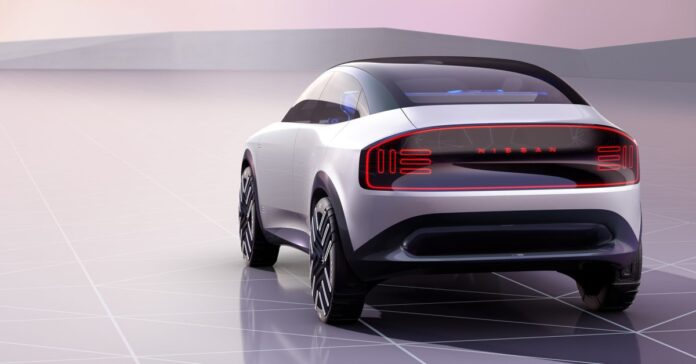Nissan is announcing a major series of investments and plans for electrification today, many of which have been long rumored but are now being concretely defined. In summary, plan on two new CUVs and a brand-new version of the Leaf, all three of which will be produced in the UK at Nissan’s Sunderland plant. In support of those plans, Nissan will also be adding another gigafactory at Sunderland to enable production.
Today’s news was originally reported earlier in the week prior to the official announcement, but Nissan has made things official today. The bullet points follow.
- An EV version of the Qashqai (marketed as Rogue Sport in the US)
- An EV version of the Juke (the Juke was discontinued in the US in 2018, but is still sold globally)
- A “replacement” for the Nissan Leaf EV
- These three EVs will be based on the Hyper Urban, Hyper Punk, and Chill Out concepts, respectively.
- A third planned gigafactory at Sunderland as part of Nissan’s “EV36Zero” manufacturing plan
A few things stand out here. First, it does appear that the Nissan “Chill Out” concept (pictured at the top of this article) will be the basis for the new Leaf, which had kind of been the running theory at this point. Second, it sounds like Nissan will be going positively crossover-crazy with its EV portfolio. Not only will there be an EV Qashqai and EV Juke (along with a probably crossover-ish Leaf replacement), the Leaf appears to be going CUV, too.
The Hyper Urban is the largest of the family, so that’s where you’ll see the Qashqai EV draw from. The Hyper Punk is a compact crossover, and that seems like the most natural analog to the Juke. As for the even smaller Chill Out, we’ve established that’s going to be the starting point for the new Leaf. Personally, I’m very curious how the Juke replacement will turn out, because the Hyper Punk concept is absolutely wild.
Nissan seems to be mostly in on electrification, and has reiterated that it plans to have a 100% electric portfolio for sale in Europe by 2030. Presumably, it does plan to continue selling ICE vehicles globally. Right now, the only competitive EV the brand offers is the surprisingly popular Ariya, a car that to me confirms Nissan still has some real design chops — and gives me hope that these future EVs will be distinctively styled.
As part of today’s news, various UK government initiatives in support of Nissan’s plans are also being announced, and Prime Minister Rishi Sunak even weighed in, saying, “Nissan’s investment is a massive vote of confidence in the UK’s automotive industry, which already contributes a massive £71 billion a year to our economy. This venture will no doubt secure Sunderland’s future as the UK’s Silicon Valley for electric vehicle innovation and manufacturing.”
For more on today’s news, check out Nissan’s press release.
Electrek’s take
Nissan has taken its time electrifying since the first Leaf dropped well over a decade ago, though the Ariya was a big step in the right direction. But like many Japanese automakers, it wasn’t clear how devoted Nissan really was to an electric future, or if it just wanted to latch onto a perceived fad.
I think with today’s news, it’s fair to say Nissan is banking on BEVs for its future. With an electric-only model lineup planned for Europe by 2030, that’s a reasonable conclusion to draw. But the stronger signal here is that the company is banking on electrifying two of its most popular models — the Juke and Qashqai. These are mass-market nameplates that have high appeal to crossover-obsessed customers who make up the middle of the vehicle market. If Nissan said it was building an electrified Patrol (aka Armada), by contrast, that would signal a greater focus on the high end of the market (at least, for a mainstream carmaker).
Nissan also has a long history in the UK, though the company’s presence in Europe has been fading in recent years. It no longer sells any sedans or hatchbacks in major EU markets, with essentially a 5-model portfolio on offer in most markets (Qashqai, Juke, X-Trail, Leaf, Ariya). The Leaf is aging out, and Nissan’s remaining ICE passenger vehicles in the EU are all platform-shared with Renault.
A major investment in EV manufacturing capacity in the UK is welcome news, and could herald a new era for Nissan on the continent — and beyond.


